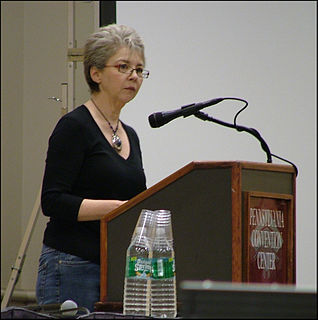A Quote by Marcus Aurelius
I have often wondered how it is that every man loves himself more than all the rest of men, but yet sets less value on his own opinions of himself than on the opinions of others.
Related Quotes
There is no crime more infamous than the violation of truth. It is apparent that men can be social beings no longer than they believe each other. When speech is employed only as the vehicle of falsehood, every man must disunite himself from others, inhabit his own cave and seek prey only for himself.
Maybe that's the way to tell the dangerous men from the good ones. A dreamer of the day is dangerous when he believes that others are less: less than their own best selves and certainly less than he is. They exist to follow and flatter him, and to serve his purposes. A true prophet, I suppose, is like a good parent. A true prophet sees others, not himself. He helps them define their own half-formed dreams, and puts himself at their service. He is not diminished as they become more. He offers courage in one hand and generosity in the other.
Man—every man—is an end in himself, not a means to the ends of others; he must live for his own sake, neither sacrificing himself to others nor sacrificing others to himself; he must work for his rational self-interest, with the achievement of his own happiness as the highest moral purpose of his life.
I know that in many things I am not like others, but I do not know what I really am like. Man cannot compare himself with any other creature; he is not a monkey, not a cow, not a tree. I am a man. But what is it to be that? Like every other being, I am a splinter of the infinite deity, but I cannot contrast myself with any animal, any plant or any stone. Only a mythical being has a range greater than man's. How then can man form any definite opinions about himself?.
For where is the man that has incontestable evidence of the truth of all that he holds, or of the falsehood of all he condemns; or can say that he has examined to the bottom all his own, or other men's opinions? The necessity of believing without knowledge, nay often upon very slight grounds, in this fleeting state of action and blindness we are in, should make us more busy and careful to inform ourselves than constrain others.
Man can will nothing unless he has first understood that he must count on no one but himself; that he is alone, abandoned on earth in the midst of his infinite responsibilities, without help, with no other aim than the one he sets himself, with no other destiny than the one he forges for himself on this earth.
Some of us need to discover that we will not begin to live more fully until we have the courage to do and see and taste and experience much less than usual... And for a man who has let himself be drawn completely out of himself by his activity, nothing is more difficult than to sit still and rest, doing nothing at all. The very act of resting is the hardest and most courageous act he can perform.
Good work is no done by "humble" men. It is one of the first duties of a professor, for example, in any subject, to exaggerate a little both the importance of his subject and his own importance in it. A man who is always asking "Is what I do worth while?" and "Am I the right person to do it?" will always be ineffective himself and a discouragement to others. He must shut his eyes a little and think a little more of his subject and himself than they deserve. This is not too difficult: it is harder not to make his subject and himself ridiculous by shutting his eyes too tightly.









































